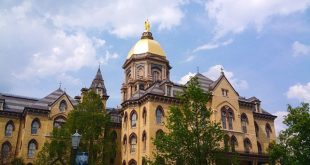Like other Christian business owners, Catharine Miller of Tastries Bakery in Bakersfield, California, served all kinds of customers. What she wouldn’t do is provide services that conflicted with her faith.
Christians believe what the God of the Bible says about sin and marriage. Homosexuality is a sin, and marriage is the union between one man and one woman.
As a cake designer, Miller didn’t want to use her artistic talents to make a custom cake for a lesbian “wedding,” which would violate the tenets of her faith. After she declined to design their “wedding” cake, she referred the women to a nearby bakery.
Miller said in 2017 that she loves everyone, and everyone is God’s creation.
“But there are certain things that violate my conscience, and my conscience will not allow me to participate in things that I feel are wrong.” Miller said she shouldn’t be “picked on” because of her beliefs.
But California’s Department of Fair Housing and Employment (DFEH) didn’t care about Miller’s First Amendment rights to practice her religion or decline to express a message she opposes. The agency hauled her into court. In fact, Miller’s legal counsel, the Thomas More Society, said she’s been subject to multiple lawsuits.
In a victory for free speech and religious freedom, however, the Superior Court of California ruled last Friday in Miller’s favor. The court contended (PDF) that DFEH sought to compel to Miller to “celebrate same-sex weddings, which changes the content of defendants’ desired expressed conduct.”
DFEH also sought to require Miller to make the cake because she makes cakes for weddings between men and women. Enforcing the statute against Miller and her bakery would amount to viewpoint discrimination. The agency wanted to compel her to make cakes for same-sex weddings, or be silent.
“No compelling state interest justifies such a result under strict scrutiny.”
The Thomas More Society noted the irony of DFEH suing Miller under the state’s Unruh Civil Rights Act, which provides protection from discrimination on the basis of race, ethnicity, and religion. Where was the government’s concern about Miller’s religious beliefs?
“We applaud the court for this decision,” Thomas More Society Special Counsel Charles LiMandri said. “The freedom to practice one’s religion is enshrined in the First Amendment, and the United States Supreme Court has long upheld the freedom of artistic expression.”
Breaking news! Cake designer Cathy Miller has been vindicated in the California courts for practicing her Christian principles on the job. https://t.co/uKjag4XgzT
— @ThomasMoreSoc (@ThomasMoreSoc) October 22, 2022
Photo credit: 23ABC video screenshot
 CURE News and Clergy Blog News and Commentary for Christians
CURE News and Clergy Blog News and Commentary for Christians



